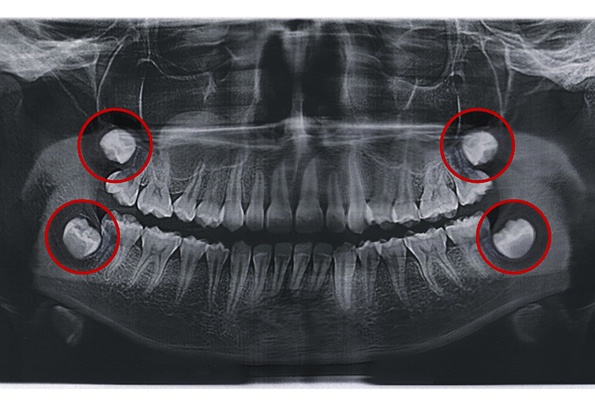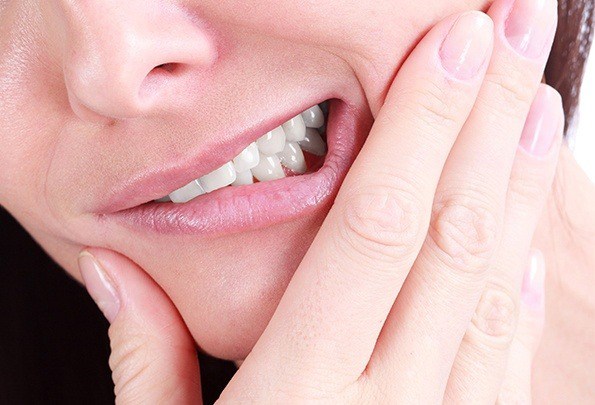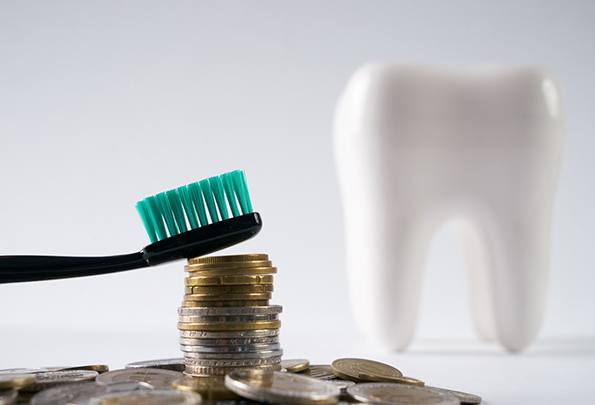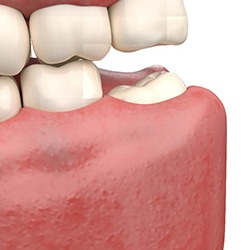Wisdom Tooth Extractions – Everett, WA
Stop And Remove Potentially
Harmful Wisdom Teeth

In the past, wisdom teeth were known for helping early generations replace missing teeth. Today, greater access to certain foods and oral care products makes it easier to retain all of your original teeth. This means that wisdom teeth are more likely to be harmful rather than helpful. At Albright Family Dental, our talented dentist can safely and effectively remove wisdom teeth that put your long-term oral health at risk. To protect your smile, give our dental office a call for wisdom tooth extractions in Everett, WA!
Why Choose Albright Family Dental for Wisdom Tooth Extractions?
- Laser Dentistry for Improved Comfort and More Precise Treatment
- Anxious? Nervous? Sedation Options Can Put You at Ease
- Dentist and Team Experienced in Safe Tooth Removal
What are Wisdom Teeth?

Simply put, they are the third set of molars. Typically, they make an appearance between the ages of 16 and 25, which is why they’ve earned the nickname “wisdom teeth.” As we touched on in the first section, they were essential for our ancestors since their diets were primitive and there wasn’t fluoridated toothpaste, soft-bristled toothbrushes, and antimicrobial mouthwashes easily available. Since we have all of those tools as well as access to a much more varied diet, it’s much easier to retain all of your original teeth.
Why Do Wisdom Teeth Need to Be Removed?

If you are between the ages of 16 and 25 and you start to experience pain towards the back of your mouth, you’ll want to get your mouth examined more closely by Dr. Jason Kaopua. In rare cases, wisdom teeth can erupt and be accommodated by the mouth. However, since the mouth is not typically large enough to do so, it can cause crowding. This negatively affects your smile and bite alignment. Furthermore, there are cases where wisdom teeth can become trapped underneath existing teeth. Without treatment, the tooth can easily become infected and harm other teeth.
What to Expect from the Wisdom Teeth Procedure

Naturally, the procedure looks a bit different from patient to patient. While one patient may want sedation dentistry, the next may be happy with simply the numbing agent. While one patient may need one wisdom tooth removed, the next may have four impacted teeth. With all of that said, the procedure always starts by numbing the area of your mouth that we will be working on. Then, we will work to gently remove your wisdom teeth. If they are above the gumline, then we can carefully wiggle them free. If they are trapped beneath your gumline, then we will need to create a small incision and divide the teeth into several pieces first. Again, you won’t feel any pain, and we will continually check in with you to make sure you’re still comfortable.
Recovering from Wisdom Teeth Extraction

Before you leave our Everett dental office, we will provide you with a list of aftercare instructions, which will look something like this:
- Do not spit, smoke, or use a drinking straw
- Take OTC pain medication (as directed) to manage discomfort
- Stick to soft foods, like vegetable soup, oatmeal, and scrambled eggs
- Keep your head elevated while you’re sleeping
- Use gauze to control any bleeding
- Avoid strenuous physical activity
If you would like to learn more about wisdom teeth extractions, or you’re simply in pain and need help, then don’t hesitate to call our Everett dental team ASAP!
Understanding the Cost of Wisdom Tooth Extractions

When you have a tooth extraction coming up, the price of the procedure may be the last thing on your mind. We understand that instinct, which is why we make it as easy as possible to pay for the care you need.
The cost of your wisdom tooth procedure can potentially change depending on a few factors. If you’d like to know a bit more that can help you budget for the procedure, here’s some information you might find useful.
Wisdom Tooth Extraction FAQs
How long does a wisdom tooth extraction take?
On average, it takes about 15-20 minutes to remove a single wisdom tooth. The overall length of the procedure largely depends on how many teeth are being removed at a single appointment and whether or not any surgery is required. Fortunately, Dr. Kaopua will be able to give you a much more detailed estimate after he has had a chance to examine and X-ray your mouth.
When is the best time to have wisdom teeth removed?
Morning tends to be the best time of day because we often ask patients to not eat several hours ahead of the procedure. There isn’t an ideal age, so we just recommend that a patient keeps up with their regular semi-annual checkups so we can suggest having them removed before they cause any serious symptoms or pain. Because an adult’s jawbone is thicker and stronger than a teen’s in most cases (which makes an extraction more complicated and difficult), it’s wise to have the wisdom teeth removed relatively early if possible.
Will I need to miss work for a wisdom tooth extraction?
This largely depends on the nature of your job. If you spend most of your day sitting down in front of a computer, then you can likely go back to work the day after your wisdom tooth extraction (as you might be drowsy from sedation the day of).
However, if you have a more physical job that involves a lot of moving and lifting, it’s probably wise to take two to three days off. Too much activity can interfere with healing and even dislodge the blood clot necessary for recovery. This can slow things down and increase the risk of a painful complication known as dry socket. Dr. Kaopua will let you know what’s best at your initial consultation so you can plan accordingly.
Can I just keep my wisdom teeth?
In rare cases, a patient is able to keep their wisdom teeth because they fit comfortably in the mouth and don’t cause any problems. This doesn’t happen very often, however. If someone comes to see us and they are already experiencing pain and pressure stemming from their wisdom teeth, then the only permanent way to stop these symptoms is to remove them.



